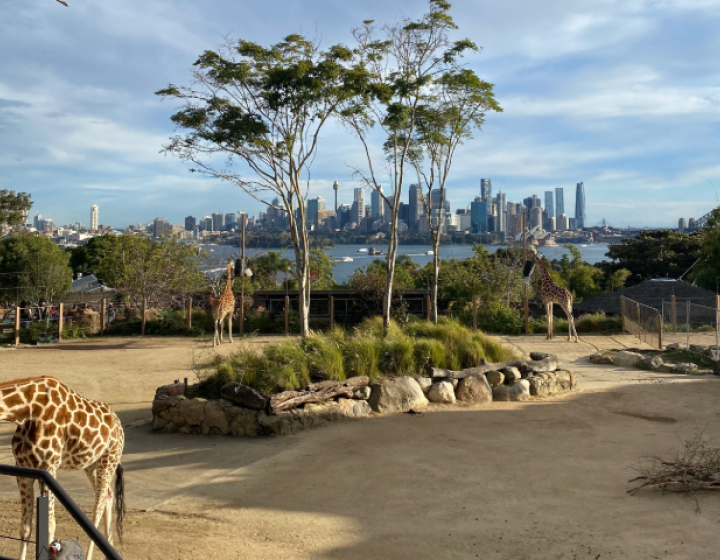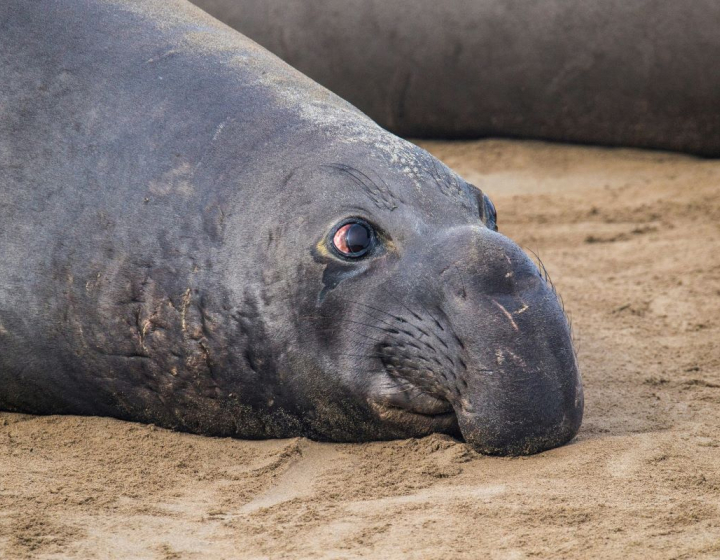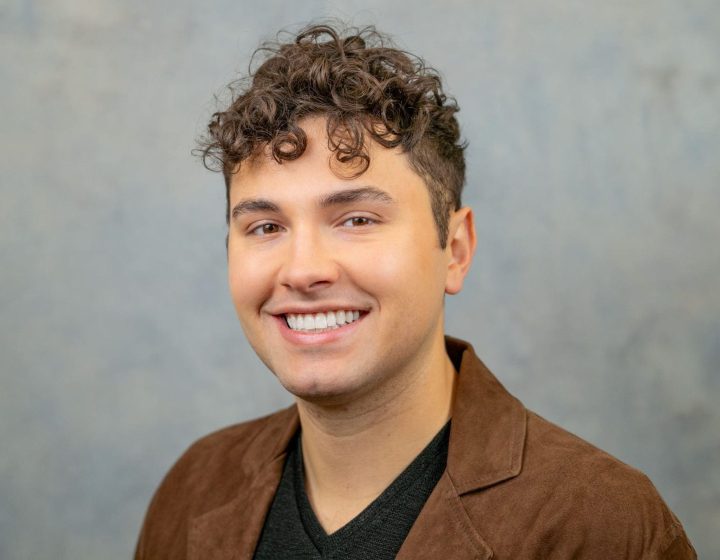Cornell veterinary class of 2022 celebrates a scaled-back white coat ceremony
The Cornell University College of Veterinary Medicine Class of 2022 enjoyed a small slice of normalcy this weekend as it celebrated the college’s time-honored White Coat Ceremony in a considerably scaled back event May 1. Only students were allowed to gather in Bailey Hall — the crowds of family and friends that normally accompany the event tuned in to the livestream to offer their congratulations instead.
“The White Coat Ceremony holds particular significance right now, as it has book-ended the COVID-19 shutdown,” said Lorin D. Warnick, D.V.M., Ph.D. ’94, the Austin O. Hooey Dean of Veterinary Medicine. “It was the last on-campus ceremony held by the college before we were forced by the outbreak to stop classroom teaching, events, travel and many other changes beginning in March 2020. Now, 14 months later, it is the first on-campus ceremony to be held by our college since the pandemic.”
The White Coat Ceremony marks the transition from preclinical coursework to a year of clinical rotations. Students will move from learning in classrooms and labs to getting firsthand experience in the Cornell University Hospital for Animals, where they engage with and learn from clinical faculty.
“You will have a great time in clinical rotations,” Warnick told the students in his welcome remarks. “You will learn a lot, but it will also at times be challenging with long hours and many responsibilities. You will make some mistakes, we all did and do, but you can recover and learn from those.”
Warnick acknowledged the difficulties and losses the community endured, holding a moment of silence to honor those who lost their lives from COVID-19 or other tragedies in the last year. He noted that this pandemic isn’t the first time Cornell has faced significant adversity — in 1903, there was a deadly outbreak of Typhoid fever from contamination of the local water supply. Just a few years later, the influenza pandemic of 1918 came to Ithaca, followed by World War I.
“I expect we have much in common with our predecessors who experienced these terrible epidemics and war just over a century ago,” Warnick said. “One lesson I take from reading those histories is how individuals and institutions recovered and overcame to carry on the important work of our profession.”
The White Coat Ceremony comes on the heels of vaccine availability to the Cornell community — by late April, 46% of students, faculty and staff working on campus had received their vaccines. Every person in Bailey Hall had been part of Cornell’s surveillance testing program and had a recent negative test. There were no handshakes, and masks and social distancing were mandatory. Students also coated themselves, as opposed to having a mentor present to do this as in years past. Katherine Edmondson, M.S. ’85, Ph.D. ’89, assistant dean for students and instruction, presented each student individually.
“I am looking forward to applying all of the knowledge that I have been taught up to now in clinics. I am also looking forward to gaining more mentorship about how to actually operate in a clinic from practicing clinicians,” said student Jillian Yant, adding that she’s looking forward to seeing her classmates in person again, a nod to the changes students have experienced during the pandemic. Said Yant, “I hope that the pandemic has brought to light the role of One Health, so that more people are able to understand that animal health, human health and environmental health are all interconnected.”
After the dean led students in the recitation of the Veterinarian’s Oath, Brett Tillou, D.V.M. ’04, president of the college’s Alumni Association Executive Board, offered congratulatory remarks virtually. “I am sure you’ll do your part to ensure Cornell’s reputation of producing wonderful veterinarians,” Tillou said. “Rest assured that this great institution has prepared you with the ability to solve any problems that can be solved. Cornell has taught you how to learn, and you will never stop.”
This was followed by the virtual keynote address of Sylvester Price, D.V.M. ’84, director of therapeutic evaluation at Boehringer-Ingelheim Animal Health. “As a member of the Class of 1984, I know firsthand the work, stress, dedication and focus you’ve devoted to get to this point,” he said. Price emphasized the importance of soft skills and the reflective learning that happens during clinical rotations. “The fourth year is a once-in-a-career opportunity to learn from what you don’t know and from your mistakes,” he said, emphasizing how valuable the feedback and guidance from Cornell’s clinical faculty will be during this time.
“If you use your fourth year to experience and initiate the process of connecting with your knowledge and abilities, assessing whether they’re at the level that you set for yourself, and then learn how to improve upon whatever you choose, you will thrive in your career,” Price said. He also noted the importance of developing a “whole self,” and having a support network. “I encourage you to find whatever it is for you that helps you recharge.”
Jodi Korich, D.V.M. ’97, associate dean for education, then presented the John F. Cummings Memorial Award to Laci Taylor ’16. The award was established in 1997 in memory of John Cummings ’58, D.V.M. ’62, Ph.D. ’66, the James Law Professor of Anatomy, who taught at Cornell for 29 years. Students from all class years are invited to nominate a member of the third-year class who best exemplifies the enthusiasm, honesty, integrity and humor for which Cummings was known.
This was followed by a welcome to the hospital by Dr. Gillian Perkins, associate director of the Cornell University Hospital for Animals, who encouraged students to approach their time in the hospital with enthusiasm. “Come each day thinking about how you might handle a case if Dr. so-and-so wasn’t standing over your shoulder. What would be your plan?” she said, advising students to research the things they struggled with and to discuss what they learned in rounds. “Let’s go out, stomp out disease and save lives, and have a good time while doing it. Welcome to the hospital,” Perkins said.
Although the pandemic continues, guidance from public health experts, strict protocols and the widescale distribution of vaccines against the coronavirus enabled this small event to take place safely, and allowed the community to recognize an important moment in the professional lives of this veterinary class.
Written by Melanie Greaver Cordova





